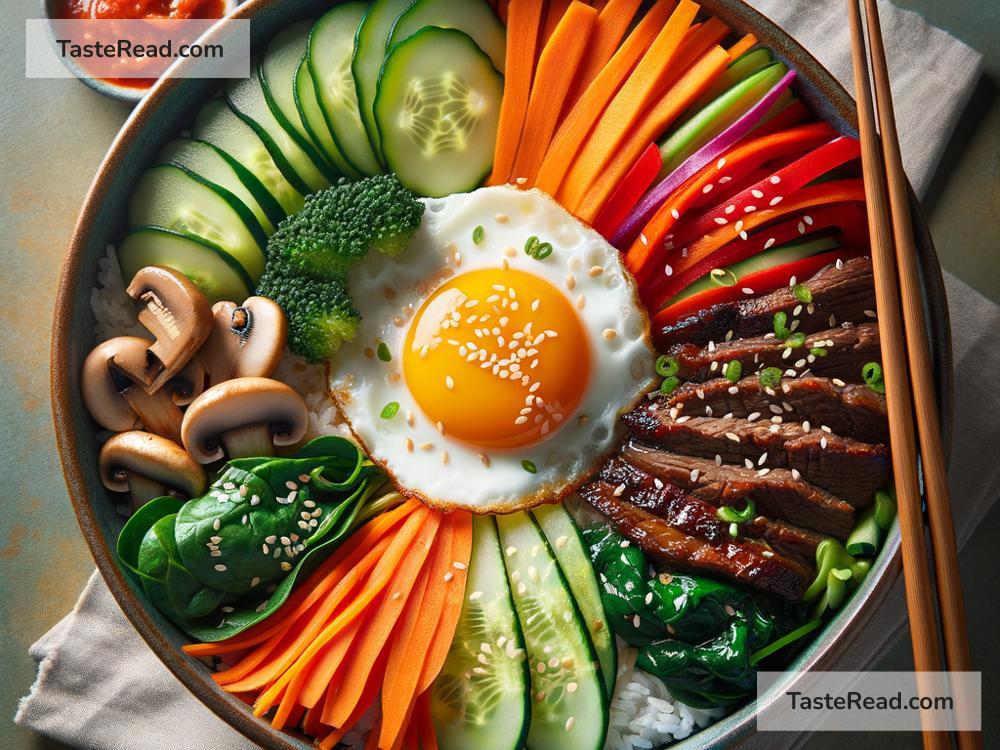Why Korean Bibimbap is the Perfect Combination of Healthy and Delicious
One of the greatest joys of exploring different cultures is diving into their culinary traditions. Among numerous global cuisines, Korean food stands out, not just for its bold flavors and textures, but also for its health benefits. And when we talk about Korean cuisine, it’s impossible to skip over the iconic dish known as Bibimbap. This dish is not just a feast for your taste buds but also a goldmine of nutrition, making it the perfect blend of delicious and healthy. But what exactly makes Bibimbap stand out? Let’s dig in.
The Basics of Bibimbap
At its simplest, Bibimbap is a mixed rice dish. But calling it just a mixed rice dish is akin to calling the Mona Lisa just a painting. Bibimbap is an experience. It typically consists of warm white rice topped with seasoned vegetables, chili pepper paste (gochujang), soy sauce, or a fermented soybean paste (doenjang). Often, it includes a raw or fried egg and sliced meat, usually beef. But the beauty of Bibimbap lies not just in its components but also in how it’s eaten. Before digging in, you mix everything thoroughly, allowing each ingredient to harmonize and create a burst of flavors in your mouth.
The Healthy Aspect
The health benefits of Bibimbap are vast, thanks to its colorful array of vegetable toppings. These vegetables aren’t just for show; they provide a wide range of vitamins, minerals, and fiber, crucial for our digestive health and overall wellbeing. For instance, spinach, one of the common ingredients, is an excellent source of iron and vitamin K, while carrots provide a healthy dose of beta-carotene, essential for eye health.
Moreover, by mixing in a variety of vegetables, Bibimbap ensures a diversified nutrient intake. You’re not just getting a delicious meal; you’re also getting a balanced diet in a bowl. The inclusion of protein, either through the meat or egg, adds to its nutritional profile by providing essential amino acids necessary for muscle repair and growth.
The Delicious Factor
Now, onto the fun part – the taste. Bibimbap is a testament to the fact that healthy doesn’t have to be boring or bland. The dish offers a symphony of flavors, from the umami richness of soy sauce and the fiery kick of gochujang to the fresh, crisp taste of vegetables and the savory depth of meat. These elements come together to create a meal that’s not only satisfying but also incredibly flavorful.
What’s more, Bibimbap is highly customizable. Whether you prefer more greens, a spicier kick, or an egg with a runny yolk, you can adjust the ingredients to suit your taste. This versatility means that Bibimbap can appeal to a wide range of palates and dietary preferences, making it an inclusive dish that everyone can enjoy.
Cultural Significance and Global Appeal
Beyond its nutritional and sensory appeal, Bibimbap carries a significant cultural heritage, representing the simplicity and harmony valued in Korean culture. It symbolizes the coming together of diverse ingredients to create a balanced and cohesive dish, reflecting the Korean philosophy of balance in life.
Its appeal transcends cultural boundaries, with Bibimbap becoming a global sensation, celebrated for its health aspects and delectable taste. It caters to the modern diner’s craving for food that’s both wholesome and gratifying, without needing to compromise on flavor.
Concluding Thoughts
In a world where fast food often takes precedence due to convenience, Bibimbap stands out as a beacon of what wholesome, nourishing food should be – simple, yet rich in nutrients; delicious, yet understated in its complexity. It’s a dish that doesn’t just feed the body but also nourishes the soul, providing a culinary experience that’s deeply satisfying on multiple levels.
Bibimbap’s universal appeal lies in its ability to strike the perfect balance between health and taste, making it not just a meal, but a celebration of life’s simple pleasures. Whether you’re a culinary adventurer eager to explore Korean cuisine or simply someone looking for a nutritious meal that doesn’t skimp on flavor, Bibimbap is sure to delight. So, the next time you find yourself pondering over what to eat, consider giving Bibimbap a try – it might just become your new favorite.


